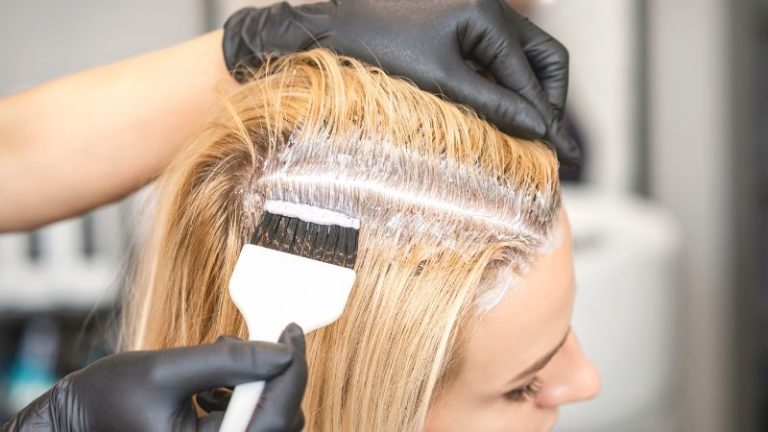Is Coconut Oil Good For Skin?
Yes, coconut oil is beneficial to the skin! It’s commonly used as a natural cure for dry skin and other skin problems. Coconut oil may help your skin stay hydrated and nourished while also preventing damage.
If you’re searching for a natural approach to enhance your skin’s health, coconut oil is definitely worth considering. Just make sure you pick an organic, virgin coconut oil for optimum results.
For consultation, please contact Holistic Care for the best Skin Specialist in Lahore.
Does coconut oil darken skin?
Coconut oil has long been revered for its skin benefits. It’s used as an ingredient in many natural cosmetics and is often praised for its ability to hydrate and nourish the skin.
However, there’s one downside to using coconut oil on your skin: it can darken your complexion.
If you’re fair-skinned, you may want to avoid using coconut oil on your face or body. The oil can absorb into your skin and cause pigment changes that make your skin appear darker. Coconut oil is also likely to clog pores, which can lead to breakouts.
If you do decide to use coconut oil on your skin, be sure to choose a light, non-greasy variety. Apply it sparingly and wash it off before going outdoors to avoid staining your clothes.
So, does coconut oil darken skin? Yes, it can. But if you use it carefully, you can still enjoy its hydrating benefits without worrying about changing your complexion.
Is coconut oil good moisturizer?
Coconut oil has been trending as a natural beauty product for some time now, with many people claiming that it does wonders for their skin. But what does the science say? Is coconut oil actually a good moisturizer?
Here’s what we know: coconut oil is made up of mostly saturated fats, which are known to be very effective at trapping moisture in the skin.

In fact, studies have shown that coconut oil can improve skin hydration and reduce transepidermal water loss better than other oils (like olive oil or sunflower oil).
How to apply coconut oil to cats skin?
If your cat has dry, itchy skin, you may be considering using coconut oil as a natural remedy. Coconut oil is known for its ability to moisturize and protect the skin, and it also has anti-inflammatory properties.
Applying coconut oil to your cat’s skin is easy, but there are a few things you need to keep in mind.
First, make sure you purchase pure, unrefined coconut oil – this type of coconut oil is safe for cats and will be the most effective.
Second, always start with a small amount of oil and slowly increase the amount you use if needed.
To apply coconut oil to your cat’s skin, simply massage a small amount into the affected area. You can also add a few drops of coconut oil to your cat’s food or water bowl – just make sure they consume it all so they don’t end up with an oily coat!
If you’re unsure whether coconut oil is right for your cat, always consult with your veterinarian first.
Is coconut oil good for skin care?
There is no one-size-fits-all solution to this question, as the effects of coconut oil on skin can vary depending on various conditions.
Many people, however, claim that coconut oil can benefit their skin by keeping it hydrated and smooth.
Coconut oil may also assist in the reduction of wrinkles and fine lines. If you’re considering using coconut oil in your skincare regimen, see a dermatologist for personalized recommendations first.
Is coconut oil suitable for oily skin?
Some people say that coconut oil is the best thing for oily skin, while others say it’s a disaster waiting to happen. So, what’s the verdict?
Coconut oil has been shown to be effective in reducing sebum production, which is the main cause of oily skin. Additionally, it can help to dissolve excess oils and dirt on the surface of the skin.
That said, coconut oil is a very heavy oil and can actually make oily skin worse if used too liberally.
It’s important to start slowly with this natural remedy and increase usage gradually. Coconut oil is a wonderful moisturizer and may be used to treat oily skin. If you’re having difficulties finding a solution that works for your skin issue, coconut oil may be worth considering.
Just keep in mind that starting with a little quantity and gradually increasing it if needed can help you avoid wasting money on something that won’t work.
Is coconut oil good for acne prone skin?
There is no one-size-fits-all answer to this question, as the effects of coconut oil on acne-prone skin can vary depending on a number of factors.
However, some people find that using coconut oil can help to soothe and heal their skin, while others may find that it aggravates their acne.t’s really a matter of trial and error to see if coconut oil works for you.
If you do decide to try using coconut oil for your acne, be sure to use a pure, unrefined oil. And be sure to apply it only to the areas of your skin that are affected by acne
If you’re thinking about using coconut oil for your acne, it’s important to do some research and experiment to see what works best for you.
Can using coconut oil on skin raise cholesterol?
Coconut oil is often praised for its ability to moisturize and nourish the skin. However, some people worry that using coconut oil on the skin might raise cholesterol levels.
There is no evidence to suggest that using coconut oil on the skin can raise cholesterol levels.Therefore, there is no need to worry about using coconut oil on your skin causing high cholesterol.
Does coconut oil clog pores for dry skin?
Despite what you may have heard, coconut oil can actually clog pores and cause breakouts for people with dry skin.
Sure, it’s a natural oil that can help to moisturize your skin. But if you have dry skin, that doesn’t mean your skin can’t produce its own oils. In fact, producing too much oil is often what leads to clogged pores and breakouts in the first place.
So if you’re struggling with dry skin and breakouts, ditch the coconut oil and try a different natural oil like jojoba or argan instead.
How to make coconut oil for skin?
But what if I told you that you could get all of those benefits without spending a fortune on expensive coconut oil products? That’s right, today I’m going to show you how to make your own coconut oil for skin!

Here’s what you’ll need:
Simply combine all of the ingredients in a bowl and mix until well combined. Then, transfer the mixture to a clean, dry jar and screw on the lid.
Simply apply a little amount of coconut oil to your skin and massage in circular motions to use. Rinse with warm water and pat dry before repeating as needed.
Is coconut oil good for burnt skin?
Coconut oil can actually make burns worse. The reason is that coconut oil is a natural emollient, which means it locks in moisture. And while that’s great for preventing dry skin, it’s not so great for burns.
When you have a burn, you need to let the area dry out so it can heal properly. But if you use coconut oil on a burn, you’re just trapping in all the moisture and making it harder for the wound to dry out and heal.
So save the coconut oil for your skin care routine and reach for something else if you’ve got a burn.
Which coconut oil is best for skin?
There are a lot of different types of coconut oil out there, and each one has its own unique benefits.
So, if you’re looking for the best coconut oil for your skin, you’ll need to do some research and figure out which one is right for you.
Here’s a quick rundown of some of the most popular types of coconut oil:
Fractionated Coconut Oil:
This type of coconut oil is made by steam distilling the flesh of the coconut. It’s then cooled and bottled.
Fractionated coconut oil is light, non-greasy, and absorbs quickly into the skin. It’s also one of the most stable type of coconut oils, meaning it has a long shelf life.
Virgin Coconut Oil:
Virgin coconut oil is produced from the entire coconut, as opposed to fractionated coconut oil, which is made from the fatty portion of the fruit.
It’s unrefined, and contains all of the natural nutrients and vitamins found in coconuts. Virgin coconut oil is thicker than fractionated coconut oil, and takes longer to absorb into the skin.
But because it’s unrefined, it has a more potent coconut flavor and aroma.
Refined Coconut Oil:
Refined coconut oil is made from copra, the dried flesh of a coconut.
To remove any impurities, refined coconut oil is refined, bleached, and deodorized. Refined coconut oil is thinner than virgin coconut oil, and has a milder coconut flavor and aroma.
So, there you have it! Now you know which coconut oil is best for your skin.
Can coconut oil make your skin lighter?
Coconut oil is often hailed as a miracle product for its many benefits for skin, hair, and overall health. But can it also make your skin lighter?
Unfortunately, there’s no simple answer to this question. Coconut oil can have some lightening effects on the skin, but it’s not a guaranteed solution for making your skin lighter.
Coconut oil has a variety of uses, including lightening the skin. Coconut oil can be used as a physical exfoliant, removing dead skin cells and revealing brighter, more evenly-toned skin beneath.
Second, coconut oil may help to fade dark spots and blemishes over time by lightening them. This is due to the fact that coconut oil has lauric acid, which has bleaching capabilities.
Coconut oil is also effective in preventing damage caused by sun’s UV radiation. This protection can cause the skin to lighten over time as a whole.
So, while coconut oil may have some lightening effects on the skin, it’s not a guaranteed solution for making your skin lighter. If you’re looking to lighten your skin, it’s important to talk to a dermatologist about other options that may be more effective for you.
How to use coconut oil for skin?

Oily skin is often a source of frustration for many people. The excess oil can lead to breakouts, shine, and an overall feeling of greasiness. But coconut oil can actually be helpful for oily skin! Here’s how to use it:
Coconut oil is great for removing makeup, even waterproof mascara! Just massage it into your skin and then wipe it away with a clean cloth.
Contrary to what you may think, coconut oil can actually help balance out oily skin. Just apply a small amount to your face after cleansing and let it sink in.
Got a pesky pimple? Dab some coconut oil on it and let it work its magic overnight.
Mix together 1 tablespoon of coconut oil with 2 tablespoons of baking soda to create a simple, effective face mask. Apply it to your skin and let it sit for 15 minutes before washing it off.
In addition to topical application, you can also get the benefits of coconut oil by consuming it internally. Try adding a teaspoon to your morning smoothie or oatmeal.
Can coconut oil damage your skin?
Coconut oil is often hailed as a natural wonder, with a host of benefits for both skin and hair. But can it actually damage your skin?
Coconut oil is a popular ingredient in many skincare products, and it’s no wonder why. It’s packed with fatty acids that can help to nourish and moisturize the skin.
But while coconut oil may have some benefits for the skin, it can also be a problem for people who are prone to acne breakouts. That’s because coconut oil can clog pores and lead to breakouts.
If you have oily or acne-prone skin, you may want to avoid using products that contain coconut oil. And if you do use them, be sure to wash your face thoroughly afterwards to remove any excess oil.
Some experts say ,yes. Coconut oil can clog pores, lead to breakouts, and cause other skin problems. It can also worsen pre-existing conditions like eczema and psoriasis.
Consult a dermatologist if you’re concerned about how coconut oil affects your skin. They can help you figure out whether or not coconut oil is appropriate for you and how to use it safely.
Benefits of Coconut oil
Coconut oil has a variety of skin benefits. Coconut oil is one of the greatest things you can use for your skin. It offers a slew of advantages, making it an excellent option for individuals wanting to improve their complexion and preserve their skins from harm.
The following are some of the most significant advantages of coconut oil on the skin:
Coconut oil is a fantastic natural option for people who want to enhance their skin. It has a variety of advantages, making it an ideal selection for individuals looking to preserve their skin while also improving its tone.
Side effects of coconut oil on skin?
Yes, coconut oil can damage your skin. In fact, it’s one of the worst things you can put on your skin.
Coconut oil is a natural saturated fat that is solid at room temperature. Coconut oil is a good source of medium-chain fatty acids, which are readily and quickly absorbed by the body.
When applied to the skin, coconut oil can clog pores and lead to acne breakouts. It can also make skin dry and flaky.
So, if you’re looking for a healthy option for your skin, coconut oil is not it. There are better choices out there that won’t damage your skin in the process.
Bottom line
The bottom line is that everyone’s skin is unique, therefore it’s essential to test various products and see what works best for you.
If you do decide to try using coconut oil on your skin, be sure to start with a small amount and gradually increase the amount you use as needed. And as always, if you experience any adverse





